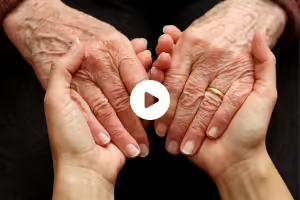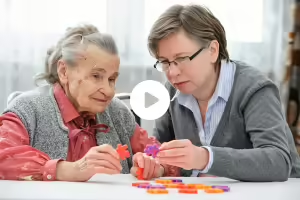Caregiving Relationships
Caregiving impacts your relationships with other family members.
This session addresses the changes that can develop among relationships with family members, successful long distance caregiving, and the need for family support.
Changing Relationships in Caregiving
As family members age and become more dependent, family caregivers may experience many emotions. Some are new, and some are carryovers from past experiences. As you take on the role of caregiver, you may experience changes in your relationship with the care receiver. Often caregivers find themselves in a role-reversal situation. Now they are caring for aging parents, a spouse, friend, or another relative who once spent many years caring for them. Changing relationships can cause feelings of fear, guilt, or anger as you care for a dependent adult. These emotions are normal. It is not easy to deal with the emotions of changing relationships, but there are a few things caregivers can do to respond positively. Read more about how relationships change.
Family Dynamics in Distance Caregiving
If distance separates you from family members, you may find yourself supporting a parent or other relative who lives many miles away. You may face challenges that include communicating effectively with caregivers from a distance, feeling that you are not doing enough, and balancing care for yourself with care of others. This can bring on feelings of guilt and frustration. Therefore, it’s important to understand some strategies to work with local caregivers and family members to help you balance distance caregiving with your own needs. Read more about distance caregiving.
Caregivers Need Family Support
Families often have unrealistic expectations of the designated primary caregiver. They may expect the caregiver to juggle many hours filled with mental, emotional, physical, and financial stress without complaining or receiving help from other family members. This is often not because family members do not care, but because of poor communication or lack of understanding about the amount of work involved in caregiving. Read more about family support for caregivers.
Watch these short informational videos
Siblings: Roles, Responsibilities and Parent Care
Siblings take on responsibilities based on how much caregiving they want to do, feel they can do, or are expected to do. Do not let the respective factors determine what you do as a caregiver. Instead, let the information help you better understand what a sibling may be dealing with. Do what you can and hope that they are doing what they can. Caregiving for a parent needs to be shared no matter what factors are influencing adult children. While siblings may not contribute equally, it is important for all to contribute and share the care. Read more about sibling roles in the care of parents.
Siblings: Working Together on Parent Care
When siblings collaborate, it positively affects their spirits and helps reduce the feelings of stress caused by caregiving. Sharing the care of a parent is both beneficial to you as well as your relationship with your siblings. Dividing care can make you feel less overwhelmed and more in control of the situation. Others may feel less in control because they can’t direct how the care is given. Working together benefits sibling relationships. You have each other and that provides comfort through difficult times. You build a bond which often carries through your own old age. Read more on how to work together with your sibling.



